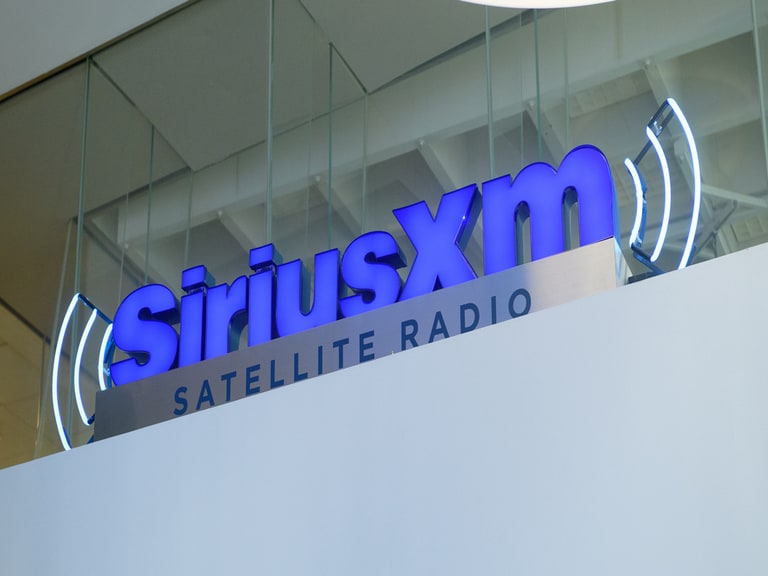Rocket Lab occupies a unique position in the space industry as both a launch firm and a spacecraft builder. Analysts predict a large increase in revenue this year, but will this be enough for the Rocket Lab share price to reverse its slump over the last 12 months?
RKLB Stock: an Introduction
Rocket Lab [RKLB] is, in the words of Founder and CEO Peter Beck, a “one-stop shop” for the space industry.
“Most space companies are easily defined as a launch company or a spacecraft or satellite company. What’s unique about Rocket Lab is that we’re both,” he told OPTO Sessions in April.
Here, RKLB stock will be analysed and then compared to Northrop Grumman [NOC] and Viasat [VSAT], two of its publicly listed competitors in the space industry.
Electron Reaches 50
Rocket Lab’s Electron rocket successfully completed its 50th launch in June in a mission that carried five satellites into orbit for Kinéis, an Internet of Things connectivity provider. Its larger launch vehicle, Neutron, is expected to commence flights in the middle of next year.
Looking further ahead, Rocket Lab could be set to play an integral role in the exploration of Mars.
Since 2021, the company has been collaborating with the University of California Berkeley Space Sciences Laboratory on its Escape and Plasma Acceleration and Dynamics Explorers mission, which will explore Mars’ “unique hybrid magnetosphere” and “how its climate has changed over time”, according to Rocket Lab’s website.
Rocket Lab is designing two Photon spacecraft for the mission, which is expected to launch in September. Amazon [AMZN] Founder Jeff Bezos’ Blue Origin will provide the launch rocket, dubbed New Glenn, with the launch set to be its first-ever commercial mission.
Rocket Lab Stock Performance
Rocket Lab’s share price is down 8.1% year-to-date and down 11.3% over the 12 months to 9 July.
However, RKLB stock has clocked a 4.1% bounce in the two trading sessions following its inclusion on Deutsche Bank’s list of six industrial stocks to buy and hold for the next 12 months.
Explore more space stocks in the OPTO app.
Rocket Lab Financials
Rocket Lab’s revenue took a giant leap in 2022, increasing 239% year-over-year to $211m. This was followed by a 15.9% jump to $244.6m in 2023.
2024 looks as though it could be another good year in terms of revenue. In Q1 2024, Rocket Lab’s revenue increased 69% year-over-year to $92.8m, with gross profit rising to $24.2m from $6.4m in the year-ago quarter. Rocket Lab issued revenue guidance of $105–110m for Q2; the mid-point of this range would represent a 73.25% increase on the $62.1m posted in Q2 2023.
For this reason, analysts expect another jump in revenue this year. However, it doesn’t appear likely that this will soon translate into shareholder profits. Analysts polled by FactSet expect negative earnings per share (EPS) for the 2024 and 2025 financial years before a $0.06 EPS profit in 2026.
Comparing Rocket Lab, Northrop Grumman and Viasat Stock
Two stocks that offer alternative means for investors to gain exposure to the space economy are Northrop Grumman and Viasat.
Northrop Grumman is an aerospace and defence company with longstanding expertise in the space sector, having supported NASA on projects from Apollo 13 to the James Webb Space Telescope. Viasat is a satellite internet company that provides connectivity across the globe through its satellite fleet, which, as of June 2023, numbers 19 satellites in orbit.
| RKLB | NOC | VSAT | |
|---|---|---|---|
| Market Cap | $2.5bn | $62.8bn | $1.9bn |
| P/S Ratio | 8.73 | 1.59 | 0.40 |
| Projected Revenue Growth (Current Year) | 74.7% | 4.7% | 5.1% |
| Projected Revenue Growth (Next Year) | 38.1% | 4.8% | 4.8% |
Source: Yahoo Finance
Rocket Lab stands out compared to Northrop Grumman and Viasat as being rather expensive relative to its sales. However, it is worth noting that its revenues are predicted to increase much faster than either of the other two companies.
RKLB Stock: The Investment Case
The Bull Case for Rocket Lab
This projected revenue growth sits at the core of the bull case for RKLB stock. The stock could benefit from increasing revenues in the future, and if analysts are correct about its shift to profitability in two years, this could also have a positive impact on Rocket Lab’s share price performance.
Rocket Lab is able to innovate quickly: its Electron rocket reached the 50-launch milestone faster than any other commercial rocket. This innovative edge could be vital in the highly competitive space industry. Additionally, as its CEO told OPTO Sessions, Rocket Lab is somewhat unique in being both a launch and a spacecraft business
The mean 12-month price target among 11 LSEG analysts suggests 57.5% share price gains to $8.00. At the optimistic end, the high target of $10.00 sees Rocket Lab stock rising 96.9%, while the low target of $4.24 sees it dropping 16.3%.
The Bear Case for Rocket Lab
The biggest threat to Rocket Lab’s long-term performance is SpaceX, which has grown its share of the global launch market from 18% in 2018 to 45% in 2023.
There is also the fact that the space industry is incredibly capital-intensive. Rocket Lab’s capital spend in Q1 2024 reached $19.2m, 20.7% of revenue during the period.
“We have created an organisation that is just so lean and so efficient. When you apply that to a much larger scale, then it’s just awesome,” according to Beck. Nevertheless, Rocket Lab will need to fend off the competition from SpaceX, Blue Origin, and other well-funded operators as it seeks to achieve profitability
This is the final and perhaps most important element of the bear case for Rocket Lab. It is currently loss-making, and analysts don’t forecast that will change for at least two years; even in that instance, only a slim profit is envisaged.
Conclusion
Rocket Lab is an intriguing and innovative company that has achieved significant success on a tight budget in an increasingly important sector for the global economy.
However, investing in sectors like space carries risks, and Rocket Lab faces significant competition from SpaceX as well as divisions of other large, diversified aerospace companies. At a minimum, investors considering investing in the stock will need to be patient and take a long-term perspective, given the company is not likely to turn a profit in the near term.
As always, the more independent research that can be carried out before making an investment decision, the better.
Disclaimer Past performance is not a reliable indicator of future results.
CMC Markets is an execution-only service provider. The material (whether or not it states any opinions) is for general information purposes only, and does not take into account your personal circumstances or objectives. Nothing in this material is (or should be considered to be) financial, investment or other advice on which reliance should be placed. No opinion given in the material constitutes a recommendation by CMC Markets or the author that any particular investment, security, transaction or investment strategy is suitable for any specific person.
The material has not been prepared in accordance with legal requirements designed to promote the independence of investment research. Although we are not specifically prevented from dealing before providing this material, we do not seek to take advantage of the material prior to its dissemination.
CMC Markets does not endorse or offer opinion on the trading strategies used by the author. Their trading strategies do not guarantee any return and CMC Markets shall not be held responsible for any loss that you may incur, either directly or indirectly, arising from any investment based on any information contained herein.
*Tax treatment depends on individual circumstances and can change or may differ in a jurisdiction other than the UK.
Continue reading for FREE
- Includes free newsletter updates, unsubscribe anytime. Privacy policy





